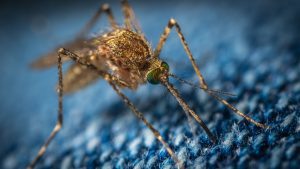My article on heartworm is instigated by a concerned owner in the USA who is looking for answers to this problem.
NZ doesn’t have Heartworm but our trans tasman cousin does.
Although heartworm in Australia has in the past been considered to be mainly a problem of tropical and subtropical coastal regions, in recent decades it has become increasingly prevalent in more southern areas. Only a few dogs get infected each year in Melbourne whereas in Queensland and the Northern Territory, heartworm is a very prevalent disease and one would be unwise not to be on prevention in these areas.
Are we prepared in NZ – we are dependent on a little Mosquito that, with climate change, may well make its mark on our NZ dogs ? Aedes, Anopheles, and Mansonia species of mosquito are all capable of transmitting heartworm. They may not be here but two Australian mosquito species which carry the disease in their home country are already in New Zealand. The Ministry of Health is spending $40 million on a bid to eradicate one, the southern salt marsh mosquito.
Although none of the mosquitoes has spread diseases to humans here yet, they did cause an outbreak of avian pox and malaria in New Zealand dotterel chicks at the Auckland Zoo and Otorohanga Kiwi House in 1996.
Pets must live in a country approved by New Zealand for at least six months before they can enter. They must have a veterinary certificate proving they are free from organisms considered biosecurity risks – including rabies and heartworm.
Singapore is an approved country, and last year 53 of the 4216 dogs imported into New Zealand came from there, according to Ministry of Primary Industries (MPI) figures.
Dirofilaria immitis, commonly referred to as heartworm, is a parasitic roundworm that infects a variety of mammals. Heartworm is found throughout the world and has been reported in all states in the U.S. The natural host for heartworms is dogs but heartworms may also live in cats, ferrets, and humans. Infection in dogs can lead to heartworm disease, a serious condition that may result in death. Cats are an atypical host since most worms in cats don’t survive to the adult stage. If cats become infected, however, they may develop serious health problems. Although isolated human infections have been reported, heartworm is not currently recognized as a human health problem.
Hosts for heartworm include domestic dogs, wolves, foxes, and raccoons. Heartworm is spread by mosquitoes that bite an infected host and then pass the parasite to another host during a blood meal. Aedes, Anopheles, and Mansonia species of mosquito are all capable of transmitting heartworm. Humans and other mammals are accidental hosts and cannot play a role in spreading heartworm as the worms do not produce the microfilariae necessary for transmission. Heartworms are only spread by the bite of a mosquito and cannot be passed directly from one dog to another. And people cannot get heartworms from their pets.
There’s no other way dogs get heartworms, apart from the bite of an infected mosquito. And there’s no way to tell if a mosquito is infected. That’s why prevention is so important.
Heartworm disease has not only spread throughout the United States, but it’s also now found in areas where veterinarians used to say “Oh, we don’t have heartworm disease.” Areas like Oregon, California, Arizona, and desert areas — where irrigation and building are allowing mosquitoes to survive. And if you have mosquitoes and you have animals, you’re going to have heartworms. It’s just that simple.
It takes about seven months, once a dog is bitten by an infected mosquito, for the larvae to mature into adult heartworms. They then lodge in the heart, lungs, and surrounding blood vessels and begin reproducing. Adult worms can grow up to 12 inches in length, can live 5-7 years, and a dog can have as many as 250 worms in its system.
People cannot get heartworm from their dogs, it can only be passed on by mosquitoes. It’s a specific parasite that only affects dogs and cats and ferrets and other mammals. In rare cases, heartworms have infected people, but it does not complete its life cycle. The heartworm will migrate to the lung and cause a round lesion that looks like a tumor. But these are very rare cases.
Your heartworm dog cannot infect another dog…, the only way heartworms are transmitted is through the bite of an infected mosquito. And even if an uninfected mosquito bit your infected dog, and then bit your uninfected dog the same night, they wouldn’t transmit the parasite from one dog to the other. That’s because when a mosquito bites an infected animal, the heartworm needs to undergo an incubation period in the mosquito before the mosquito can infect other animals.
We can breathe a sigh of relief in NZ but for how much longer?

